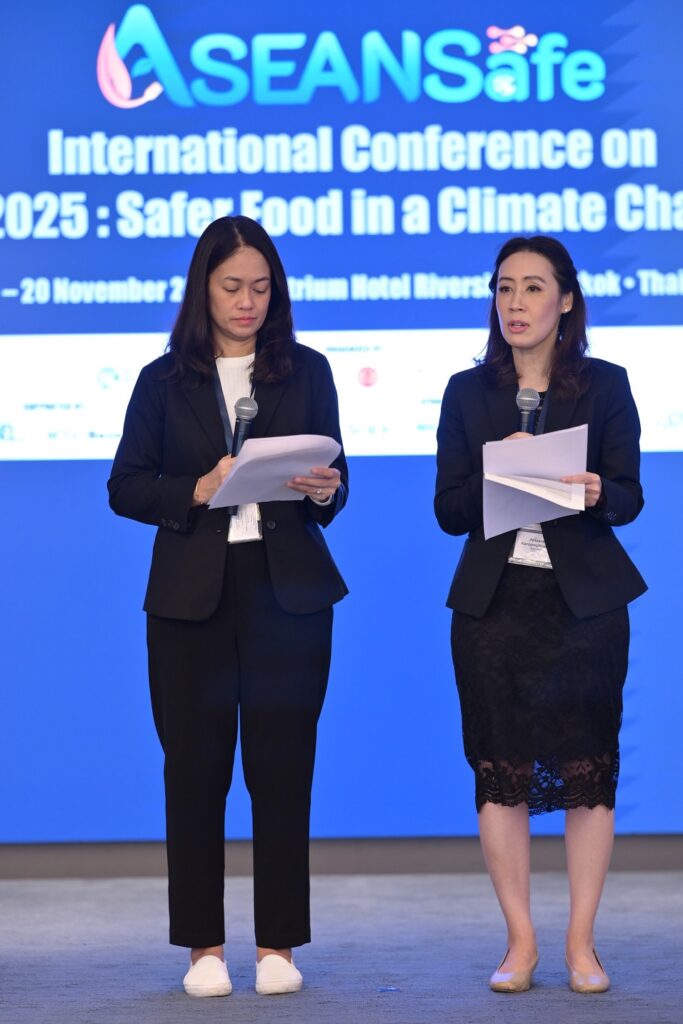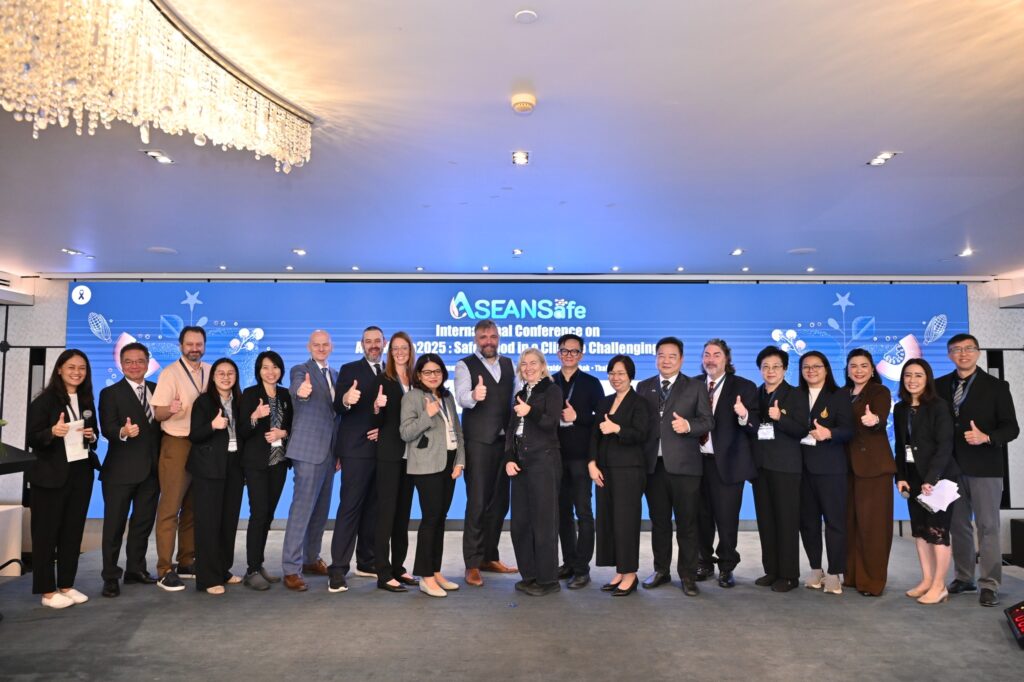
19 – 20 November 2025, Chatrium Hotel Riverside Bangkok, Thailand, BIOTEC-NSTDA, in collaboration with Thammasat University, Queen’s University Belfast, and the International Joint Research Center on Food Security (IJC-FOODSEC), recently hosted ASEANSafe2025: Safer Food in a Climate challenging Era from 19 – 20 November 2025 at Chatrium Hotel Riverside Bangkok, Thailand. By fostering dialogue and collaboration, ASEANSafe works to support regional actions that strengthen food and agriculture across ASEAN. Its goal is to help the region build systems that are safe, strong, and sustainable for the future.
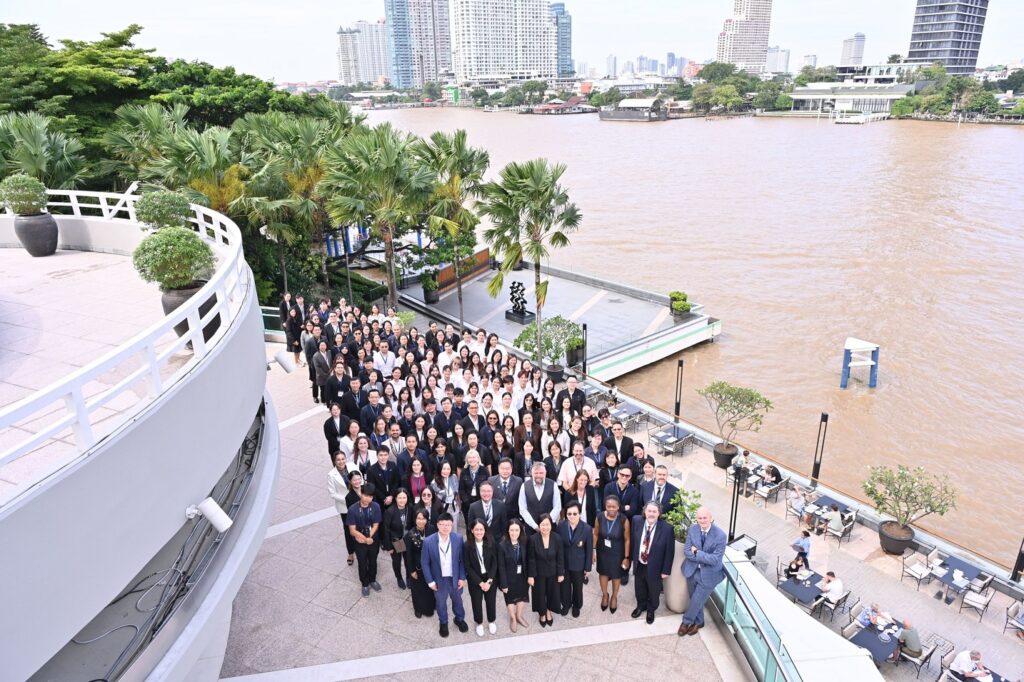
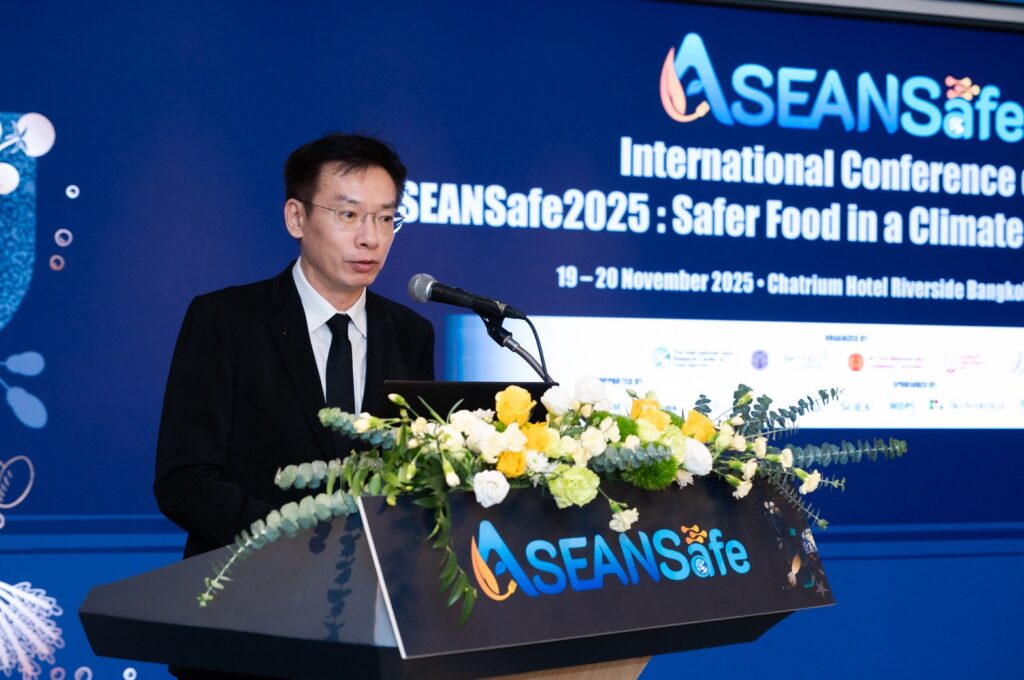
At the opening of ASEANSafe 2025, Prof. Dr. Supachai Pathumnakul, Permanent Secretary of the Ministry of Higher Education, Science Research and Innovation, Thailand, highlighted that food safety is vital for public health, sustainable development, and trade, noting the high impact of foodborne illnesses in ASEAN, and emphasized the need for transnational cooperation, commending IJC-FOODSEC, NSTDA, Thammasat University, and partners for strengthening food safety, addressing mycotoxin risks, and bridging science with policy across the region.
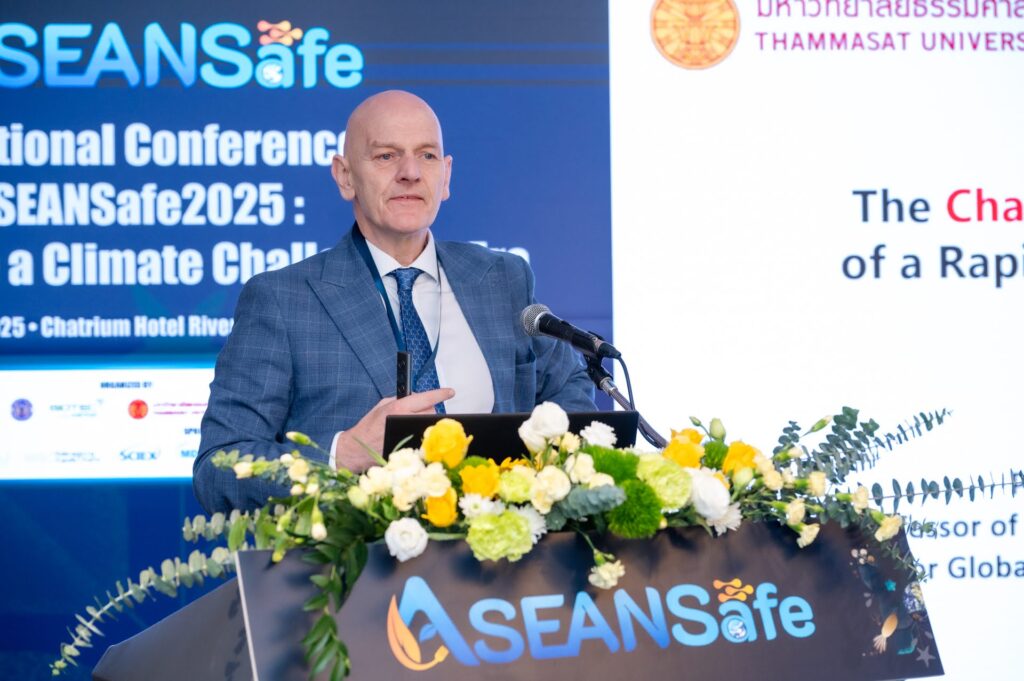
Dr. Michael Bucki, Counsellor for Environment, Agriculture & Health, Delegation of the European Union to Thailand, joined the launch of ASEANSafe 2025 and noted that climate change is increasing mycotoxin risks affecting food safety. The EU supports the Marie Curie–funded MYCOBEANS project, which links universities, research institutes and companies in Europe, Thailand, and the United Kingdom to improve detection, research, and mitigation of mycotoxins in legumes. Using a One Health approach, the EU emphasized continued collaboration and capacity-building with ASEAN to strengthen food safety.
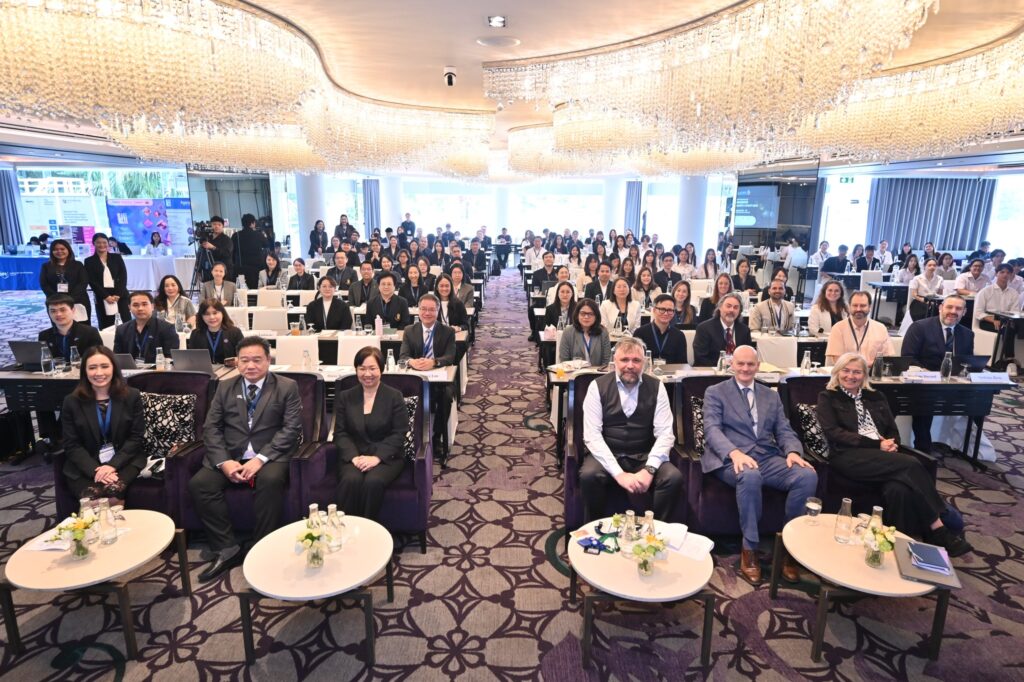
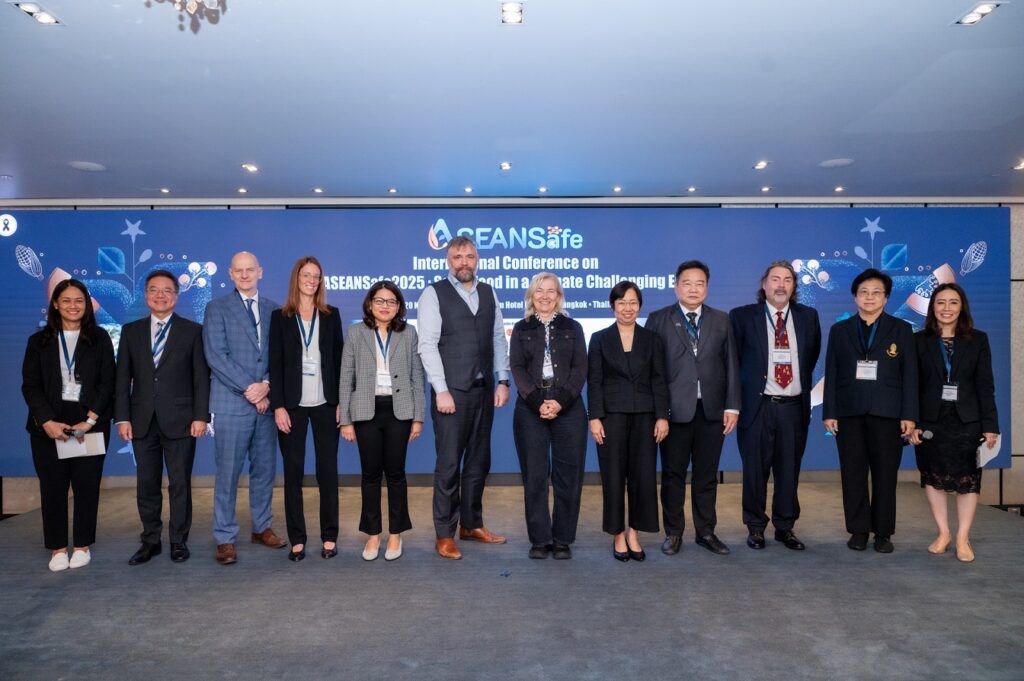
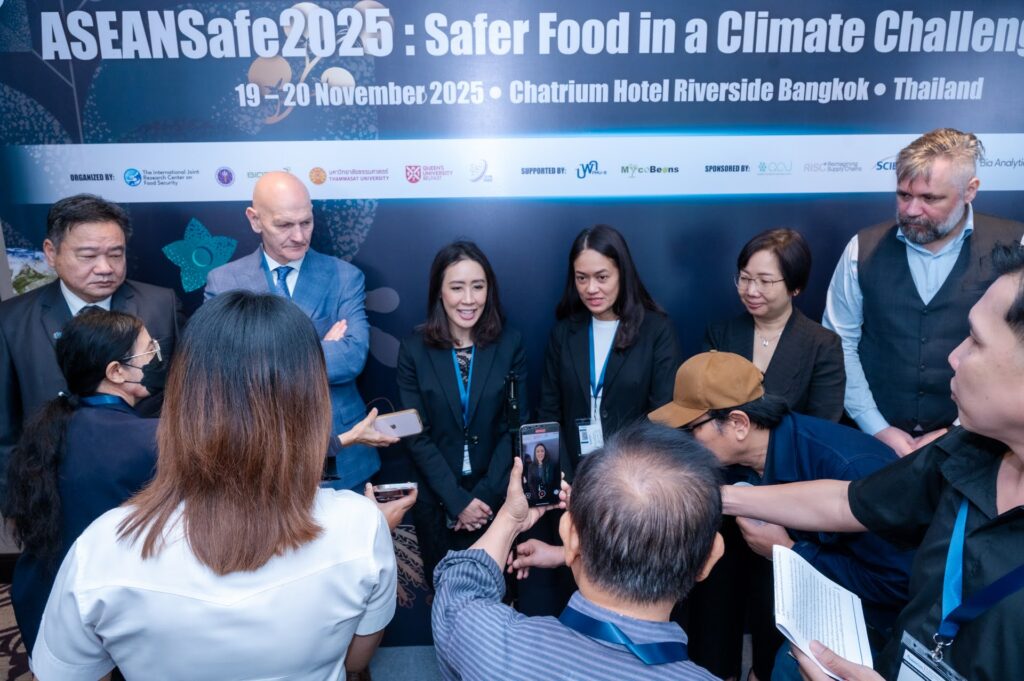
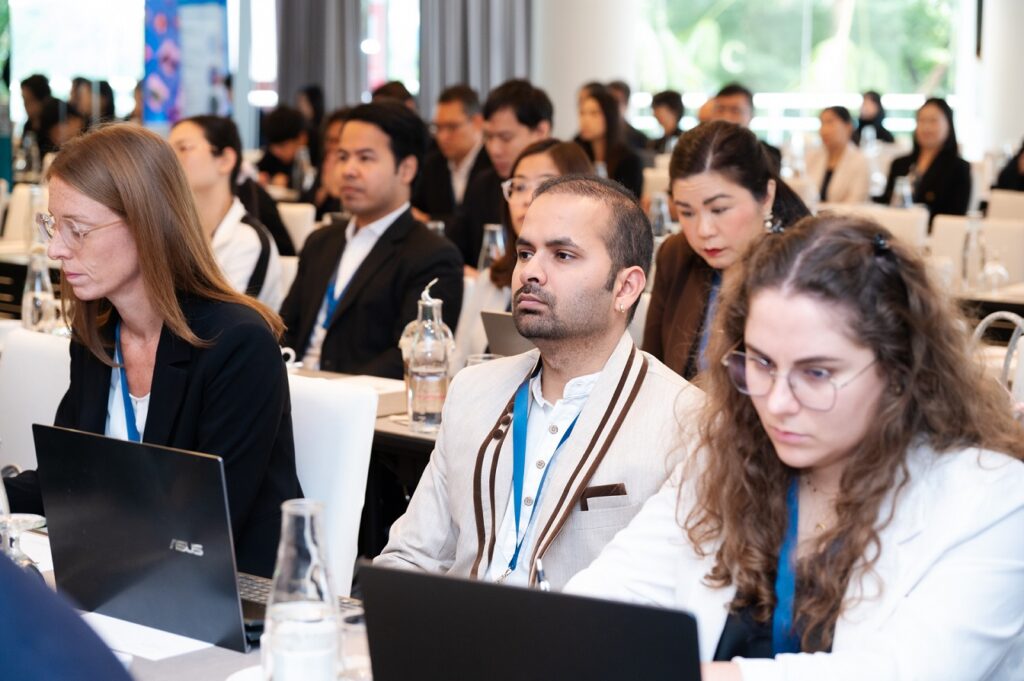

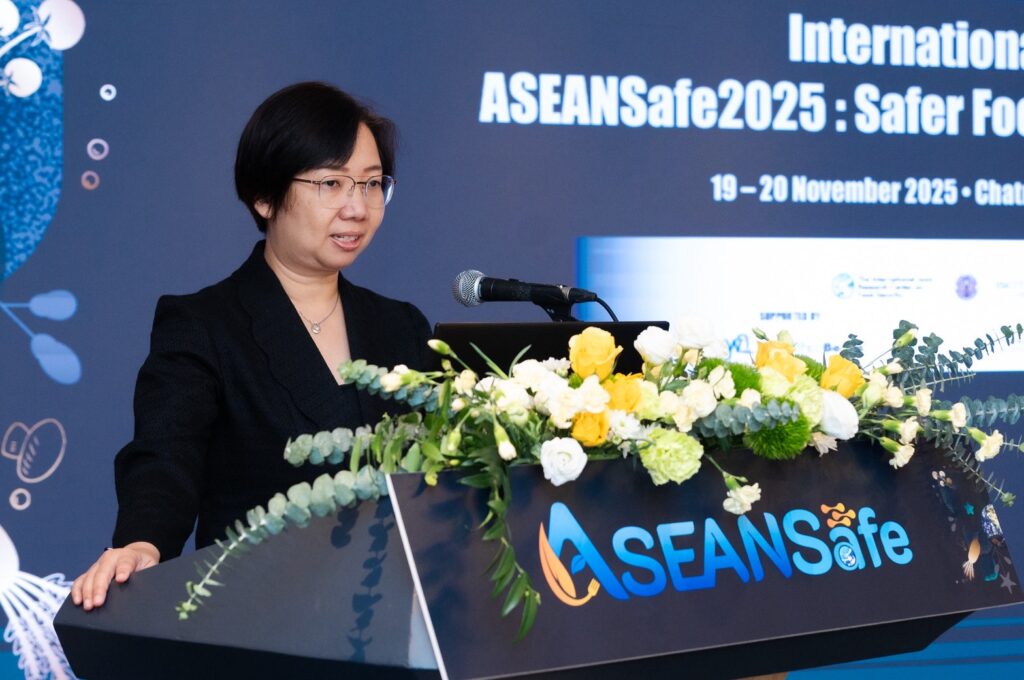
Dr. Warinthorn Songkasiri, Deputy Executive Director of BIOTEC, emphasized the conference as a platform for collaboration, reaffirmed BIOTEC’s commitment to strengthening every link in the food chain, highlighted research initiatives such as MYCOBEANS and mycoSMART, and stressed that these efforts improve food safety, address contamination risks, support regulation, industry cooperation, and build strong food systems across ASEAN and beyond.
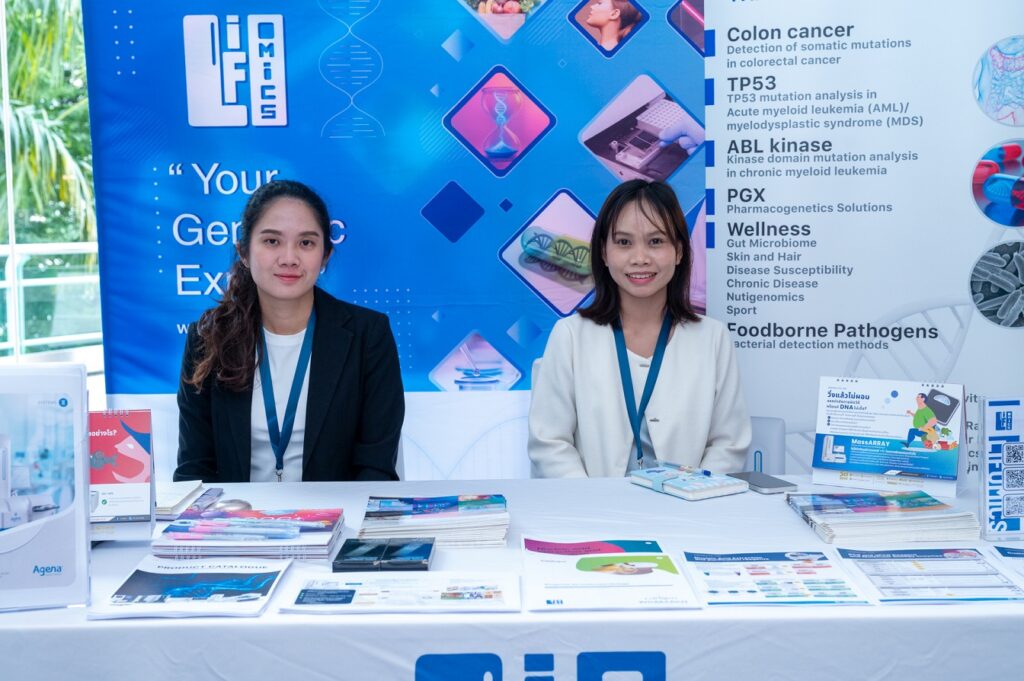
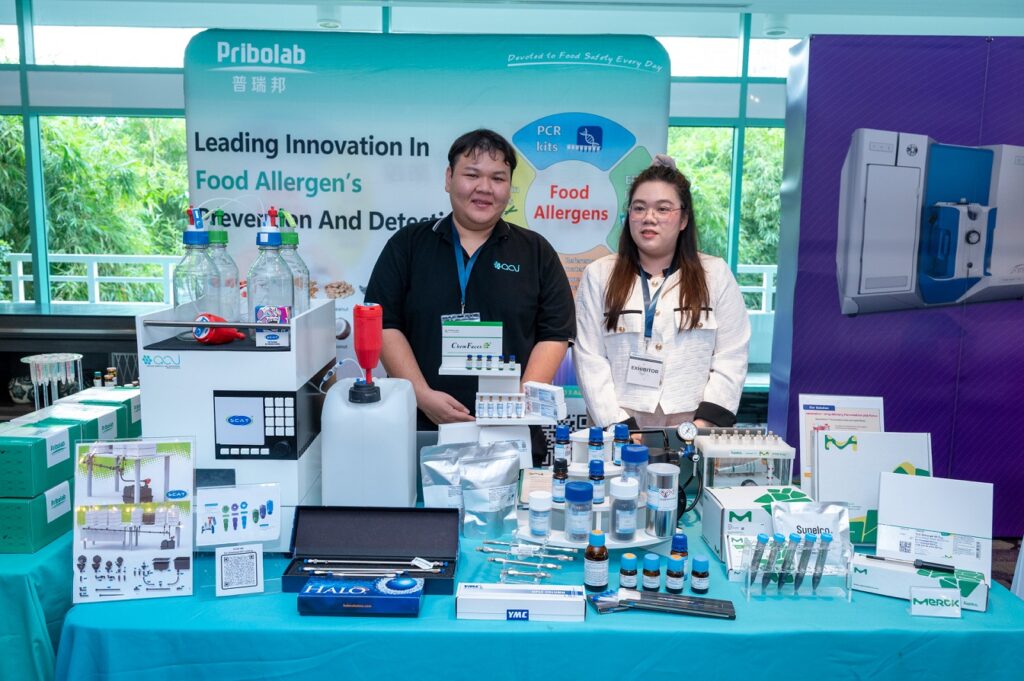
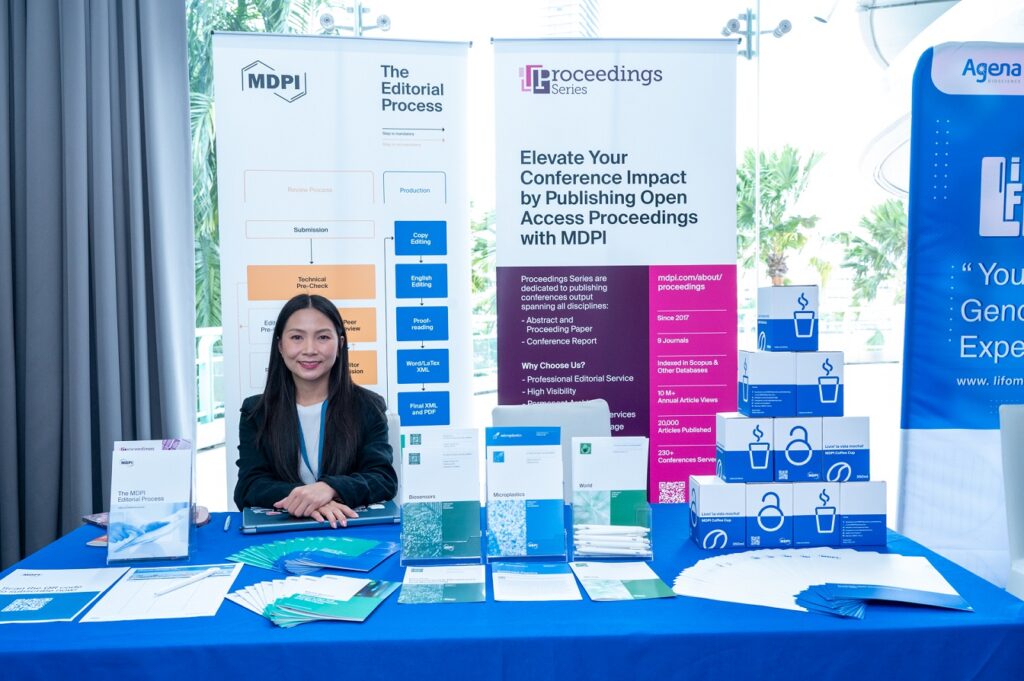
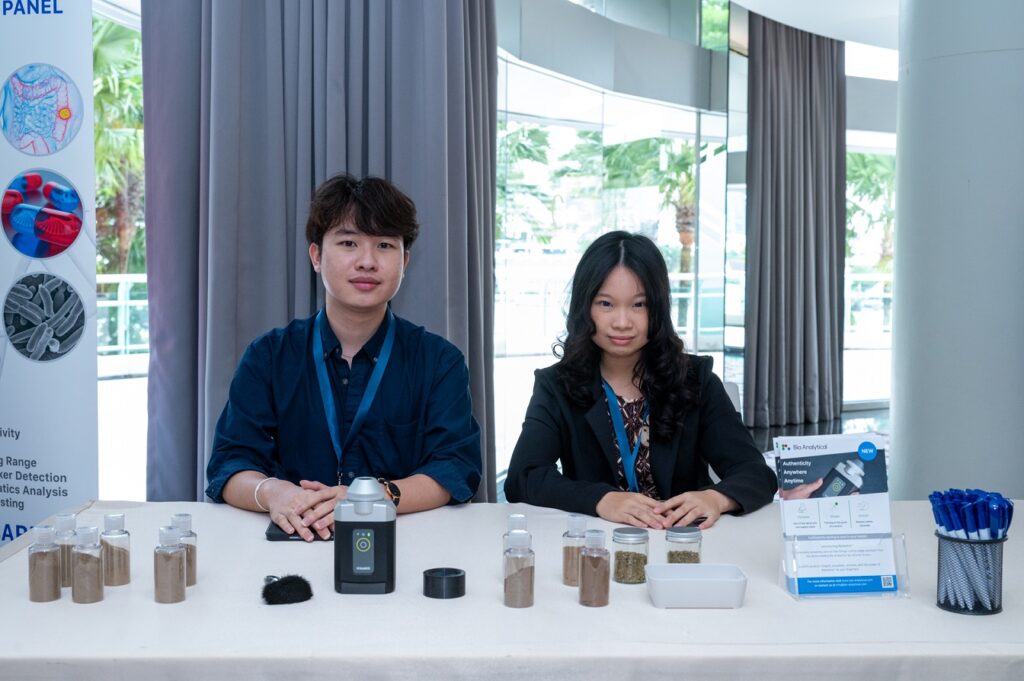
Dr. Nirawat Thammajak, Director of PMU-B, explained that the mycoSMART project has made significant research progress, developed new prototypes, and expanded international partnerships, leading to the establishment of IJC-FOODSEC together with NSTDA, Thammasat University, and Queen’s University Belfast to strengthen research capacity and support global cooperation on food security.
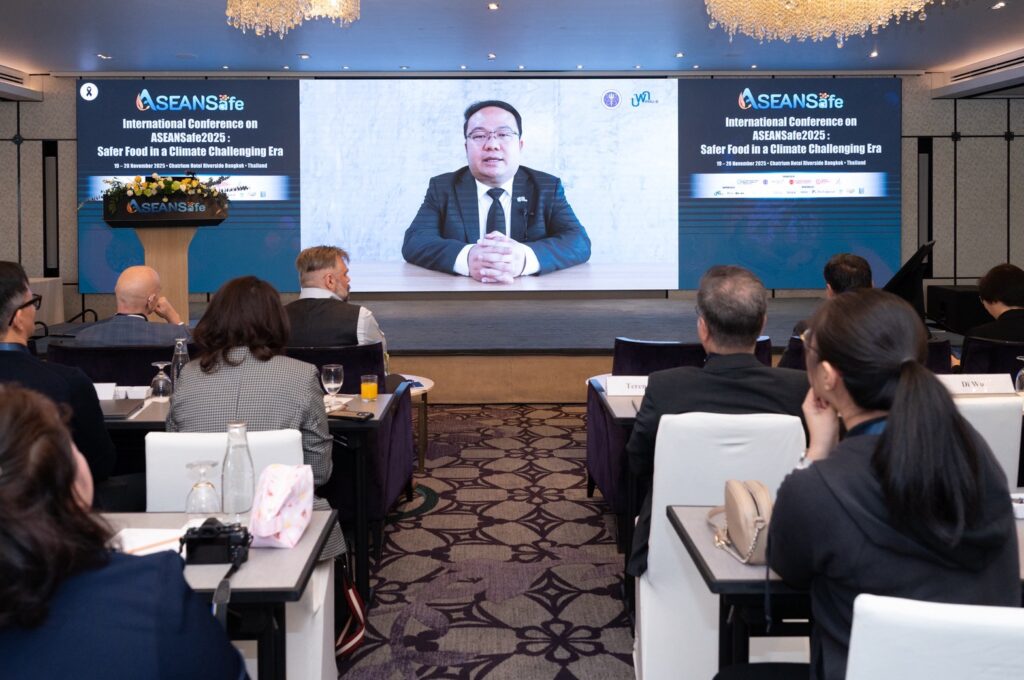
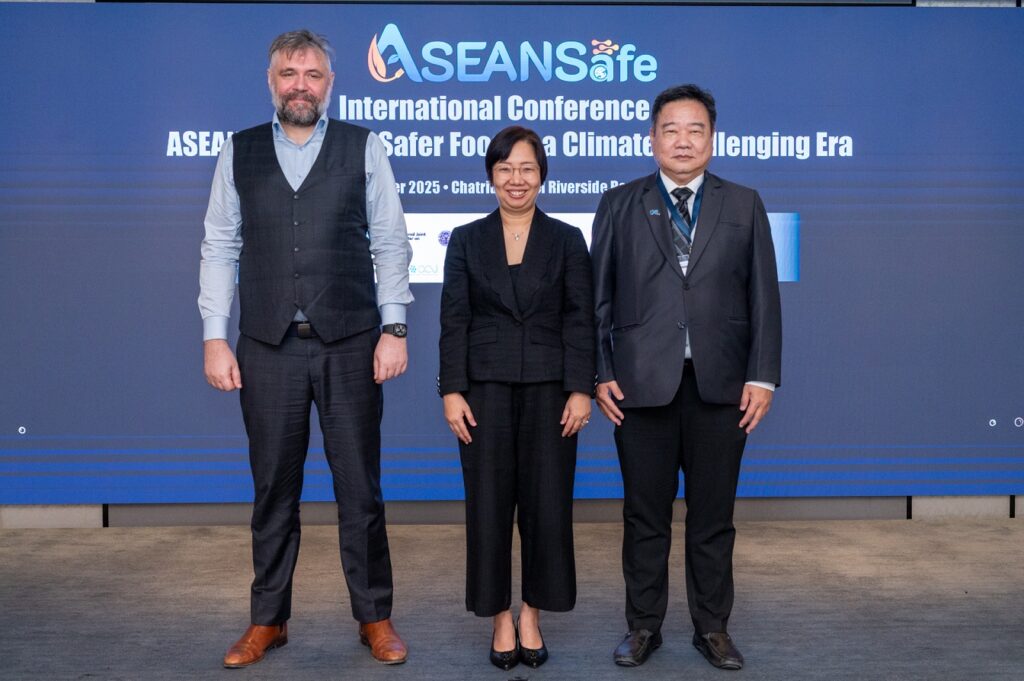
ASEANSafe 2025 stands as an indication of the region’s commitment to safeguarding food safety and strengthening food security in the face of growing global challenges.The conference was attended by over 150 participants from 10 countries.
